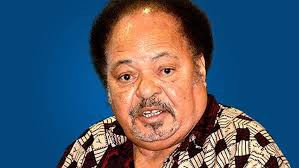
Moves by a group of Zimbabwean intellectuals to form a National Transitional Authority (NTA) attracted varied opinions this week, with leading commentators slamming the plan as a legal nullity.
However, there were pushbacks from pro-reform experts, who argued that instead of concentrating on a transitional arrangement, this was an opportunity for the southern African country to build an opposition party capable of bridging the gap created by the Citizens Coalition for Change (CCC)’s fragmentation.
They argued that Zimbabwe’s crisis was not merely economic or technical, but political. For the NTA to matter, it must morph from an elite proposal into a populist force, with boots on the ground and a clear mandate to challenge the status quo, they argued.
They said it was not enough to call for reforms. What remains of the CCC is a subdued version of a party that competed neck-and-neck with Zanu PF in the 2023 elections, with its leader Nelson Chamisa giving President Emmerson Mnangagwa a strong challenge in the presidential poll.
The CCC has been ripped apart by divisions, which saw Chamisa leaving and new leaders taking charge.
Others agreed the NTA — whose idea was recently shared by political scientist Ibbo Mandaza — would be a viable option to manage a country staggering under the weight of economic implosion, political sclerosis, and a crisis of confidence.
At its heart, the proposed NTA envisions a non-partisan, time-bound caretaker body tasked with stabilising the economy, reforming key institutions, and restoring democratic credibility. It seeks to chart a new course ahead of Zimbabwe’s 2028 elections. But its road to reality appears strewn with obstacles.
“It is an idea that on paper looks really great but does not have legitimate political backing,” political analyst Gideon Chitanga said.
- Can Zimbabwe hold a credible election?
- Letter from America: Ariel Primary: A school that teaches pupils to be angels
- Can Zimbabwe hold a credible election?
- Letter from America: Ariel Primary: A school that teaches pupils to be angels
Keep Reading
“There is no one in African politics who will simply relinquish power.”
For Chitanga, the real work lies elsewhere — building a robust opposition that can mount a credible challenge to Zanu PF’s entrenched dominance.
Kudzai Mutisi, a leading analyst, echoed similar scepticism, branding the NTA notion as “stretching the imagination”.
“There is no political or constitutional avenue for it,” he said.
“The current government was elected with an overwhelming majority. Any transition will start and end within Zanu PF.”
However, others see the NTA not as a retreat from politics, but a reinvention of the craft. In a sharply-worded analysis, constitutional expert Musa Kika said the NTA would be an essential arrangement.
“Any new opposition under the status quo would suffer the same brutality, lawfare, infiltration, electoral theft, and outright violence from Zanu PF,” Kika told the Zimbabwe Independent.
“Zimbabwe under Zanu PF is just a dictatorship by other means,” he claimed.
The analysts agreed that for the NTA to evolve, it must cease being a conference of the disillusioned and become a rallying point for the dispossessed: youth, churches, labour, students, diaspora, and disbanded opposition groups.
This would not be unprecedented — transitional authorities have emerged elsewhere under similarly dire circumstances, from Sudan to Burkina Faso.
But unlike those cases, Zimbabwe has long been suspended in a state of pre-collapse, with citizens trapped in a war on livelihoods — diminishing job opportunities, volatile currencies, and crumbling hospitals.
Other critics point to structural resistance. Godwine Mureriwa suggested the NTA was a nostalgic throwback to the Government of National Unity era between 2008 and 2013.
“Despite the divisions within Zanu PF and the opposition, the context is different. There is no certainty about the outcome, and intra-party succession is a hot potato,” he noted.
Leopold Chakanyuka went further, flatly rejecting the NTA on grounds of political legitimacy.
“Zimbabwe does not have any of the characteristics that would require a transitional authority,” he said.
“We have a government that was voted for by more than 50% of the population,” he added, pointing instead to perceived progress toward becoming an upper-middle-income country.
The conversation on a National Transitional Authority forces Zimbabwe to confront uncomfortable truths. The NTA must decide: will it be a vehicle for real transformation, or another missed opportunity in a long history of Zimbabwean disappointment?
If it cannot rise to the moment, the idea risks being consigned to the graveyard of Zimbabwe’s many lost hopes. But if it does, it may just become the seed of a new era.









